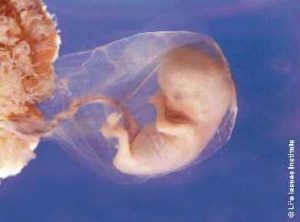What now?
Taking care of yourself throughout your pregnancy will help your body better adjust to pregnancy and it will aid in your child’s healthy development. Talk to your doctor about healthy habits for your pregnancy and be sure to ask your doctor if you have concerns about certain foods, habits, or activities.
Eating Right
In addition to taking your prenatal vitamins, you will want to balance your diet with nutritious foods for you and your baby. You will want to include:
-
3-4 servings of protein
-
7+ servings of grains
- 3-4 calcium-rich foods
- 1+ Vitamin C-rich food
- 1+ dark green vegetable
- 2+ servings of fruits and/or vegetables
- 3+ servings of good fats
- 8+ fluid servings (of 8 oz)
Alcohol should be avoided or very limited since it has been linked to birth defects when consumed in high amounts during pregnancy. You are also encouraged to limit caffeine intake to under 200 mg per day. (Check this Caffeine Content guide for help).
You are also advised to stay away from some types of fish (e.g. shark, swordfish, king mackerel, or tilefish), soft cheeses (e.g. feta, Brie, Camembert, blue-veined, and Mexican-style cheese), and raw seafood (e.g. sushi).
For more information, please check out Web MD’s “Eating Right When Pregnant” guide. Here are 2 handouts to help you make good diet decisions:
- Nutrition During Pregnancy (by The Female Patient)
- Nutrition During Pregnancy (by Michigan State University)
Find easy recipes for snacks and meals on our “Easy Recipes for College Students” page. Follow @prenatalnutritionist on Instagram for easy recipes and nutrition tips!


Exercise
Exercise can be done safely throughout pregnancy. Exercise can help reduce pregnancy symptoms like nausea, and some women claim that it makes labor and recovery easier. However, you should consult your doctor before engaging in more strenuous exercise activities. When engaging in exercise during pregnancy, consider these 13 tips found here, and here are suggestions for safe ways to exercise.
The Big No No’s
During pregnancy, you are strongly advised to avoid alcohol, drugs, smoking, and other habits that will pose harm to you and your growing child. Other habits that you may not consider to be “dangerous” include changing your cat’s litter box and cleaning your house. If you have a cat, have your partner or a friend take care of the litter box in order to avoid toxoplasmosis, which can cause birth defects in preborn children. When cleaning your house, make sure that you have good ventilation when using cleaners and wear gloves to avoid skin contact with strong chemicals. (Here are some natural cleaning products and tips if you choose to do away with chemical cleaners.)
If you have concerns about certain activities, it’s best to openly discuss these with your doctor. Also, be sure to discuss medications or other medical treatments with your doctor so that you can explore safe alternatives or adjustments.
Fetal Development
- Permanent kidneys appear.
- Hands and wrist joints are forming.
- All cranial nerves are now present, and limb nerves are forming.
- Subtle movement begins.





